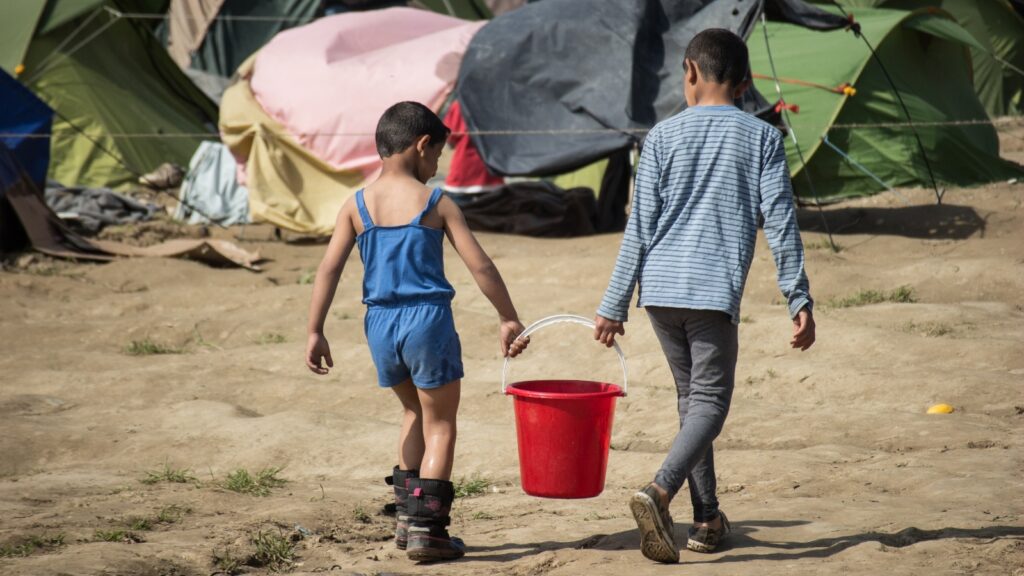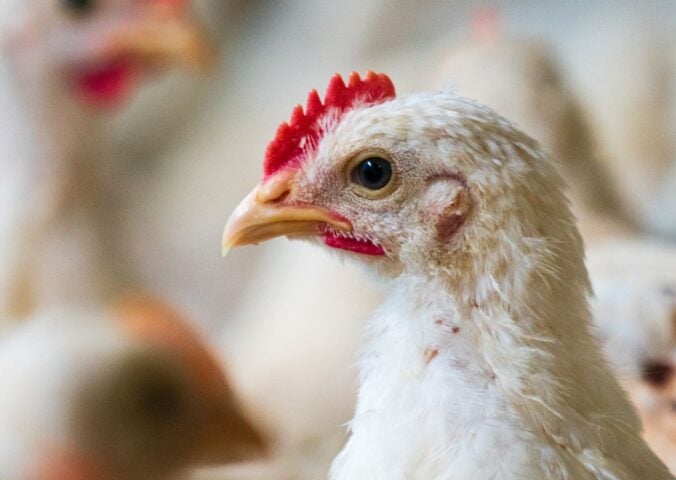As the earth heats up, seas rise, and natural disasters become more frequent, homes are becoming uninhabitable. And as a consequence, around the world, more and more people are finding themselves faced with impossible decisions. Stay put and deal with treacherous, life-threatening environmental challenges, like drought, severe heatwaves, floods, and hurricanes. Or flee, and move themselves and their families to a place that’s unfamiliar, but one of relative environmental safety.
The above is a decision no human being wants to make. However, by 2050, the Institute for Economics and Peace predicts that 1.2 billion people could be facing life as a climate refugee. But is the world ready for this massive influx of displaced people? In a word: no.
A lack of climate support from the West
The West is already struggling to cope with the current refugee crisis, as people flee war, persecution, and famine. The UK government is actively trying to deport people to Rwanda. In France too, asylum seekers face hostility from the government. And under Trump, the US subjected more than 20,000 children to the risk of serious harm, says Human Rights Watch.
To be able to deal with the growing climate refugee crisis, things need to change and fast.
We’re looking at a frightening future; we need tangible action in terms of climate crisis prevention and mitigation. But we need a healthy dose of compassion too.
After all, it is the world’s richest countries that did the most to create the climate crisis that people are running away from. According to The New York Times, the 23 richest countries in the world are responsible for half of all historical carbon dioxide emissions. These include the UK, Australia, France, and Canada. The US is the worst offender, responsible for 24.6 percent of all emissions.
Rich countries are also the biggest consumers of meat. The industry wastes resources, drives deforestation, and accounts for 14.5 percent of all emissions. In fact, a recent report from the University of Bonn in Germany concluded that Western countries need to cut meat consumption by 75 percent. This is to help alleviate pressure on the planet.
Lead researcher Dr. Matin Qaim said: “If all humans consumed as much meat as Europeans or North Americans, we would certainly miss the international climate targets and many ecosystems would collapse.”
But despite this, it is the world’s poorest countries that suffer the most from extreme weather events caused by Western excess.
Climate disasters in low-income nations
The Intergovernmental Panel on Climate Change’s Fourth National Climate Assessment Report concluded that low-income nations are more vulnerable to environmental hazards. They also have a difficult time recovering from them, due to a lack of financial safety nets. The UN also notes that 99 percent of climate crisis casualties take place in developing countries.
In the Caribbean, for example, tropical storms are rising, with 30 recorded in 2020. In Africa, Madagascar’s recent food crisis was caused by severe drought, which experts say was induced by the climate emergency.
“Climate change is having a growing impact on the African continent,” said Petteri Taalas, the Secretary-General of the World Meteorological Organization in 2020. “[It’s hitting] the most vulnerable hardest, and contributing to food insecurity, population displacement and stress on water resources.”
It is the duty of the West to not only provide financial compensation (something only Scotland has pledged so far) but to also exercise compassion. To provide safety, shelter, and respite from the traumatic events that it has helped create. To ensure safe pathways are open to all who need them. If not, the consequences are grave.
Climate refugees are vulnerable to exploitation
According to a report published last year, the millions that flee environmental disasters in the coming years will also be vulnerable to human trafficking, sexual exploitation, and debt bondage. Researchers discovered young women are already being exploited in Ghana. They fled to the cities to avoid drought in the north.
Ritu Bharadwaj—who works for the International Institute for Environment and Development, one of the organizations that commissioned the report—said: “The world cannot continue to turn a blind eye to the forced labor, modern slavery, and human trafficking that’s being fueled by climate change.”
“Addressing these issues needs to be part and parcel of global plans to tackle climate change.”
As the climate crisis escalates, a plane to Rwanda cannot be the answer. The flight may not have taken off, but it embodies the UK’s, and the Western, attitude to those who come seeking help: Not our problem. This attitude is devoid of compassion. But, with potentially more than a billion people soon to be displaced, it’s simply not sustainable.
Campaigning for more climate refugee support
Organizations like the Environmental Justice Foundation (EJF) are fighting for the rights of climate refugees. The NGO claims 41 people per minute are already being forced out of their homes by the climate crisis. It has set up a petition to call on world leaders to protect human beings and provide refuge from man-made climate disasters.
In the petition, EJF states it is calling on countries to stand by the Paris Agreement and reduce emissions. But also to guarantee climate refugees “their fair claim to our shared world.” It notes that right now, existing legislation like the Geneva Convention only supports people fleeing war or persecution.
Antonio Guterres, the Secretary-General of the United Nations, has also expressed concern over this lack of framework, stating that climate refugees “find themselves in a legal void.”
To get involved with EJF’s efforts and encourage world leaders to do more to protect climate refugees, you can sign its petition here.






